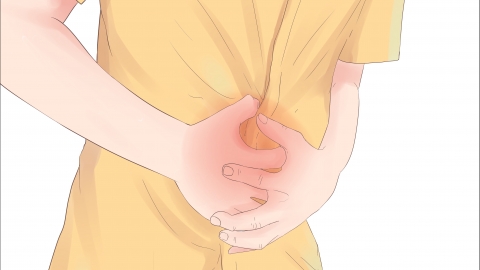Why does my stomach hurt at noon when I don't eat breakfast?
Generally, stomach pain at noon due to skipping breakfast in the morning may be caused by gastric acid irritation, improper diet, chronic gastritis, gastric ulcer, gastroesophageal reflux, and other conditions. Symptomatic management through general treatment and medication may be necessary. If discomfort occurs, timely medical consultation is recommended for corresponding treatment under a doctor's guidance. Detailed analysis is as follows:

1. Gastric Acid Irritation
Skipping breakfast may cause gastric acid secretion without food for digestion, thereby irritating the gastric mucosa and causing stomach pain. Symptoms may include a burning sensation in the stomach and acid reflux. It is recommended to eat breakfast regularly, such as eggs and milk, to avoid prolonged gastric acid irritation to the gastric mucosa.
2. Improper Diet
Eating too fast or consuming difficult-to-digest or irritating foods, such as spicy or greasy foods at noon, can irritate the gastric mucosa, leading to indigestion and abdominal pain. Symptoms may include bloating, nausea, and vomiting. It is recommended to adjust eating habits, chew food slowly, and avoid overeating or consuming irritating foods.
3. Chronic Gastritis
Chronic gastritis results from long-term irritation or damage to the gastric mucosa. The inflamed gastric mucosa is prone to erosion by gastric acid. Skipping breakfast allows gastric acid to directly act on the inflamed mucosa, worsening the inflammation and causing pain. Other symptoms may include indigestion, loss of appetite, and weight loss. It is recommended to take medications such as omeprazole enteric-coated tablets, lansoprazole tablets, or esomeprazole magnesium enteric-coated tablets under a doctor's guidance.
4. Gastric Ulcer
A gastric ulcer refers to an ulcer formed on the gastric mucosa, commonly seen in cases of excessive gastric acid secretion or Helicobacter pylori infection. Skipping breakfast may lead to gastric acid directly eroding the ulcer site, causing pain. The stomach pain may recur periodically, often occurring a few hours after meals and worsening at night. It is recommended to take medications such as pantoprazole enteric-coated tablets, rabeprazole sodium enteric-coated tablets, or bismuth potassium citrate tablets as directed by a physician to alleviate symptoms.
5. Gastroesophageal Reflux
Gastroesophageal reflux mainly results from dysfunction of the lower esophageal sphincter, excessive gastric acid secretion, and other factors. The esophageal mucosa of patients with gastroesophageal reflux has already been damaged, and reflux of gastric contents can worsen the inflammatory response of the esophageal mucosa, causing stomach pain. Skipping breakfast may lead to excessive gastric acid secretion, increasing the risk of reflux. Symptoms may include retrosternal burning sensation, acid regurgitation, and belching. It is recommended to take medications such as omeprazole enteric-coated capsules, hydrotalcite chewable tablets, or itopride hydrochloride tablets under a doctor's guidance.
It is also recommended to maintain adequate sleep, avoid staying up late and mental stress, and engage in moderate exercise, such as jogging or swimming, which can help enhance physical fitness and gastrointestinal function.




